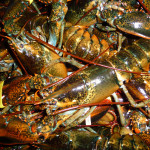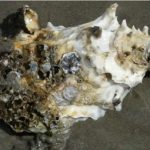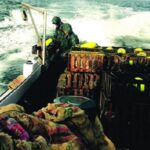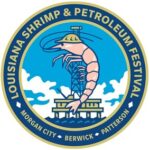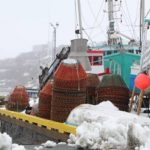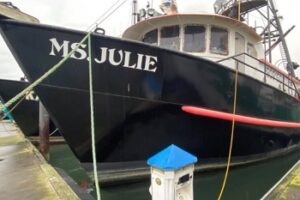Daily Archives: January 16, 2017
FISH-NL SLAMS FFAW for stonewalling on membership list
 The Federation of Independent Sea Harvesters of Newfoundland and Labrador (FISH-NL) is slamming the Fish, Food and Allied Workers union (FFAW) for trying to prevent the release of the list of inshore fish harvesters. “The FFAW has thrown around the 10,000 figure as the rough number of active, inshore harvesters, but the union knows that’s a fairy tale,” FISH-NL president Ryan Cleary said in a news release. “The attempt to block the release of the list is a sure sign of guilt of exaggeration.” On Dec. 30th, FISH-NL presented an application to the Labour Relations Board to represent the province’s inshore fish harvesters with 2,352 membership cards signed by inshore harvesters around Newfoundland and Labrador. FISH-NL said that number represents more than 50 per cent of all harvesters, the amount required to force a vote by the Labour Relations Board to decide which union will represent harvesters. Read the rest here 17:24
The Federation of Independent Sea Harvesters of Newfoundland and Labrador (FISH-NL) is slamming the Fish, Food and Allied Workers union (FFAW) for trying to prevent the release of the list of inshore fish harvesters. “The FFAW has thrown around the 10,000 figure as the rough number of active, inshore harvesters, but the union knows that’s a fairy tale,” FISH-NL president Ryan Cleary said in a news release. “The attempt to block the release of the list is a sure sign of guilt of exaggeration.” On Dec. 30th, FISH-NL presented an application to the Labour Relations Board to represent the province’s inshore fish harvesters with 2,352 membership cards signed by inshore harvesters around Newfoundland and Labrador. FISH-NL said that number represents more than 50 per cent of all harvesters, the amount required to force a vote by the Labour Relations Board to decide which union will represent harvesters. Read the rest here 17:24
Fisherman Kirby Elson’s legal challenge of inshore fishery rules is back on
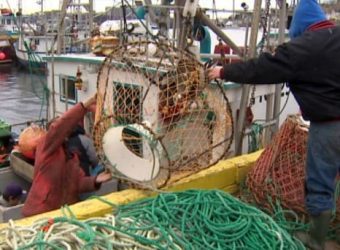 A Labrador fisherman who launched a legal challenge of rules for Atlantic Canada’s inshore fishery only to back away from litigation last week has had another change of heart. Lawyers for Kirby Elson have notified the Federal Court that he will be proceeding with his case, after all. Elson’s legal challenge is widely seen as a test case for Canada’s ban on controlling agreements in the inshore fishery. Elson, of Cartwright, N.L., did not explain why he changed course in a letter to the Federal Court. “I have reconsidered this matter and I have decided I wish to proceed. Please accept this letter as a retraction of my letter dated Jan. 10, 2017,” Elson wrote in a Jan. 12 letter, which was made public Monday. Read the story here 16:54
A Labrador fisherman who launched a legal challenge of rules for Atlantic Canada’s inshore fishery only to back away from litigation last week has had another change of heart. Lawyers for Kirby Elson have notified the Federal Court that he will be proceeding with his case, after all. Elson’s legal challenge is widely seen as a test case for Canada’s ban on controlling agreements in the inshore fishery. Elson, of Cartwright, N.L., did not explain why he changed course in a letter to the Federal Court. “I have reconsidered this matter and I have decided I wish to proceed. Please accept this letter as a retraction of my letter dated Jan. 10, 2017,” Elson wrote in a Jan. 12 letter, which was made public Monday. Read the story here 16:54
Questions arise over commercial license fees collected for flounder fishery observers
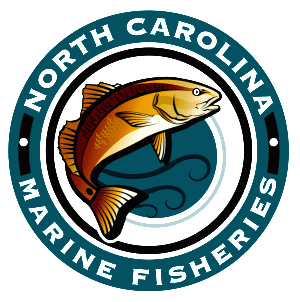 Watermen want to know what happened to commercial license fees that were collected to fund observers required by law for flounder fishing when sea turtles are spotted in area waters. Few answers were provided at a meeting of the North Carolina Commercial Fishing Resource Funding Committee on Jan. 4. Records show that $1.3 million was allocated for the observers in the 2015-2016 fiscal year, but only $608,065 was spent. Dewey Hemilright, who attended the meeting, asked how so much could have been spent on the Section 10 permit program when the flounder fishery was closed much of the season. “Expenses need more accountability,” said Hemilright, a long-line fisherman. “This doesn’t affect me, but I’m willing to pay the extra money if it allows others to fish. But if there’s more being paid in than is needed, then it should be returned to the fishermen.” An additional license fee was imposed after a state appropriation to cover the cost of complying with the federal permit’s conditions was eliminated. One condition requires the observers, who monitor interactions with endangered sea turtles and sturgeon. Read the rest here 15:53
Watermen want to know what happened to commercial license fees that were collected to fund observers required by law for flounder fishing when sea turtles are spotted in area waters. Few answers were provided at a meeting of the North Carolina Commercial Fishing Resource Funding Committee on Jan. 4. Records show that $1.3 million was allocated for the observers in the 2015-2016 fiscal year, but only $608,065 was spent. Dewey Hemilright, who attended the meeting, asked how so much could have been spent on the Section 10 permit program when the flounder fishery was closed much of the season. “Expenses need more accountability,” said Hemilright, a long-line fisherman. “This doesn’t affect me, but I’m willing to pay the extra money if it allows others to fish. But if there’s more being paid in than is needed, then it should be returned to the fishermen.” An additional license fee was imposed after a state appropriation to cover the cost of complying with the federal permit’s conditions was eliminated. One condition requires the observers, who monitor interactions with endangered sea turtles and sturgeon. Read the rest here 15:53
81 False killer whales die off South Florida coast
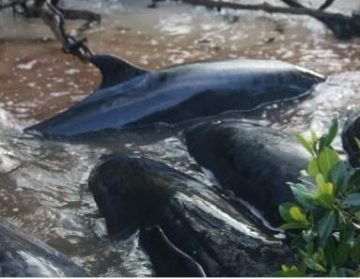 81 false killer whales have died after stranding themselves off the South Florida coast. NOAA announced the grim news on Monday afternoon. NOAA initially reported that 95 false killer whales were stranded in South Florida. Then on Monday afternoon, NOAA Fish Southeast tweeted that 81 whales had died and also said the whales were at a remote location off of Hog Key in the Everglades. One whale was seen alive on Monday and 13 others are unaccounted for, NOAA Fish Southeast said on Twitter on Monday afternoon. The National Park Service has closed the area around the whale stranding location. The National Park Service is asking that aircraft not fly over the area and that boats stay away from the area. Read the rest here 15:14
81 false killer whales have died after stranding themselves off the South Florida coast. NOAA announced the grim news on Monday afternoon. NOAA initially reported that 95 false killer whales were stranded in South Florida. Then on Monday afternoon, NOAA Fish Southeast tweeted that 81 whales had died and also said the whales were at a remote location off of Hog Key in the Everglades. One whale was seen alive on Monday and 13 others are unaccounted for, NOAA Fish Southeast said on Twitter on Monday afternoon. The National Park Service has closed the area around the whale stranding location. The National Park Service is asking that aircraft not fly over the area and that boats stay away from the area. Read the rest here 15:14
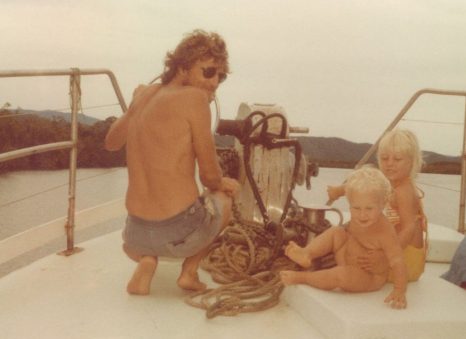
The True Story of the Fugitive Drug Smuggler Who Became an Environmental Hero
When Raymond Stansel was busted in 1974, he was one of Florida’s biggest pot smugglers. Facing trial and years in prison, he jumped bail, changed his name, and holed up in a remote Australian outpost. Even more remarkable than that? His second life as an environmental hero. – Even before he arrived at the accident scene, sergeant Matt Smith knew it would be bad. Smith was in charge of the 12-person police department in Mossman, a speck of a town located along Australia’s remote northeastern edge. He knew from experience that there was a fundamental truth about car wrecks: drivers have a pretty good chance of surviving a crash that’s car versus car, but they rarely walk away from a vehicle that’s slammed into a tree. The call that came over the police radio on that May 26, 2015 afternoon said that a vehicle had struck a tree along a two-lane road hugging the coastline. Officers traced the registration to Dennis “Lee” Lafferty, age 75. Everybody knew Lee. Read the story here Read Traffic accident in Australia ends 40-year-old mystery in Florida Click here 14:04
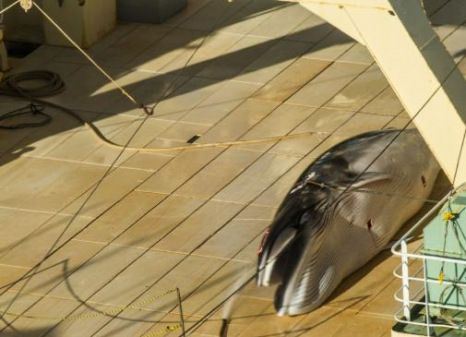
Australian Government ‘disappointed’ as minke whale slaughtered in our waters – Why the Hunt Goes On
The Federal Government has this morning condemned Japan after one of its ships was caught whaling in the waters off Antarctica. Anti-whaling group Sea Shepherd released photos showing a dead minke whale on the deck of the Nisshin Maru ship in the Australian whaling sanctuary. It appears the death was playing out at the same time as Japanese Prime Minister Shinzo Abe’s weekend meeting with Malcolm Turnbull in Sydney, at which the ABC reports whaling was ‘mentioned’, but focused on trade and defence. Japan is a signatory to the International Whaling Commission’s moratorium on whaling in force since 1986. But it exploits a loophole allowing whales to be killed for the purposes of “scientific research”. Read the story here What are the issues behind Japan’s whaling programme, and why has compromise been so difficult? Isn’t whaling banned? Not quite. The International Whaling Commission (IWC), which regulates the industry, agreed to a moratorium on commercial whaling from the 1985. But it did allow exceptions, enough for Japan to hunt more than 20,000 whales since. Read the story here 11:28
Fisherman breaks own record with 1004lb Giant bluefin tuna
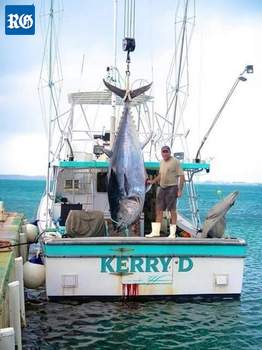 Third generation fisherman David Soares landed the biggest tuna caught in Bermuda’s waters on Saturday morning and he did so single-handedly in 15 minutes flat.The Bermudian, who said he has had it confirmed by the fisheries department that the 1004lb giant bluefin tuna that landed on his boat was the heaviest recorded in the island’s history, was also responsible for the previous record catch — a 1003lb tuna landed in the same fishing grounds in 2013. He was out fishing alone on Challenger Banks about ten miles southwest of the island on Saturday morning when he felt the tug. It was his first “bite” of the day after just five minutes with the lines out. Read the story here 09:32
Third generation fisherman David Soares landed the biggest tuna caught in Bermuda’s waters on Saturday morning and he did so single-handedly in 15 minutes flat.The Bermudian, who said he has had it confirmed by the fisheries department that the 1004lb giant bluefin tuna that landed on his boat was the heaviest recorded in the island’s history, was also responsible for the previous record catch — a 1003lb tuna landed in the same fishing grounds in 2013. He was out fishing alone on Challenger Banks about ten miles southwest of the island on Saturday morning when he felt the tug. It was his first “bite” of the day after just five minutes with the lines out. Read the story here 09:32
Fishermen and Scientists to collaberate on Trawl Surveys utilizing industry vessels in the Gulf of Maine
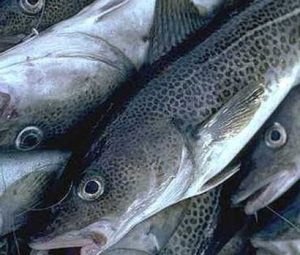 By next year, the Northeast Fisheries Science Center hopes to begin outfitting commercial boats with surveying equipment and paying fishermen to pull in catches that will supplement the regular trawl surveys conducted by government scientists, according to Russell Brown, who heads the center’s population dynamics branch. The gathered data will be fed into the complex process used to set catch quotas. It’s a collaboration that Brown hopes will give regulators a more detailed picture of the fish population and build trust among fishermen, who in turn see it as an opportunity to show the scientists what’s really going on. “It’s really perplexing that you’ve got a set of federal scientists who are sampling the ocean methodically and coming up with a very different picture than the fishermen about what’s going on out in the Gulf of Maine,” Jonathan Labaree of the Gulf of Maine Research Institute said. Read the story here 08:27
By next year, the Northeast Fisheries Science Center hopes to begin outfitting commercial boats with surveying equipment and paying fishermen to pull in catches that will supplement the regular trawl surveys conducted by government scientists, according to Russell Brown, who heads the center’s population dynamics branch. The gathered data will be fed into the complex process used to set catch quotas. It’s a collaboration that Brown hopes will give regulators a more detailed picture of the fish population and build trust among fishermen, who in turn see it as an opportunity to show the scientists what’s really going on. “It’s really perplexing that you’ve got a set of federal scientists who are sampling the ocean methodically and coming up with a very different picture than the fishermen about what’s going on out in the Gulf of Maine,” Jonathan Labaree of the Gulf of Maine Research Institute said. Read the story here 08:27


































